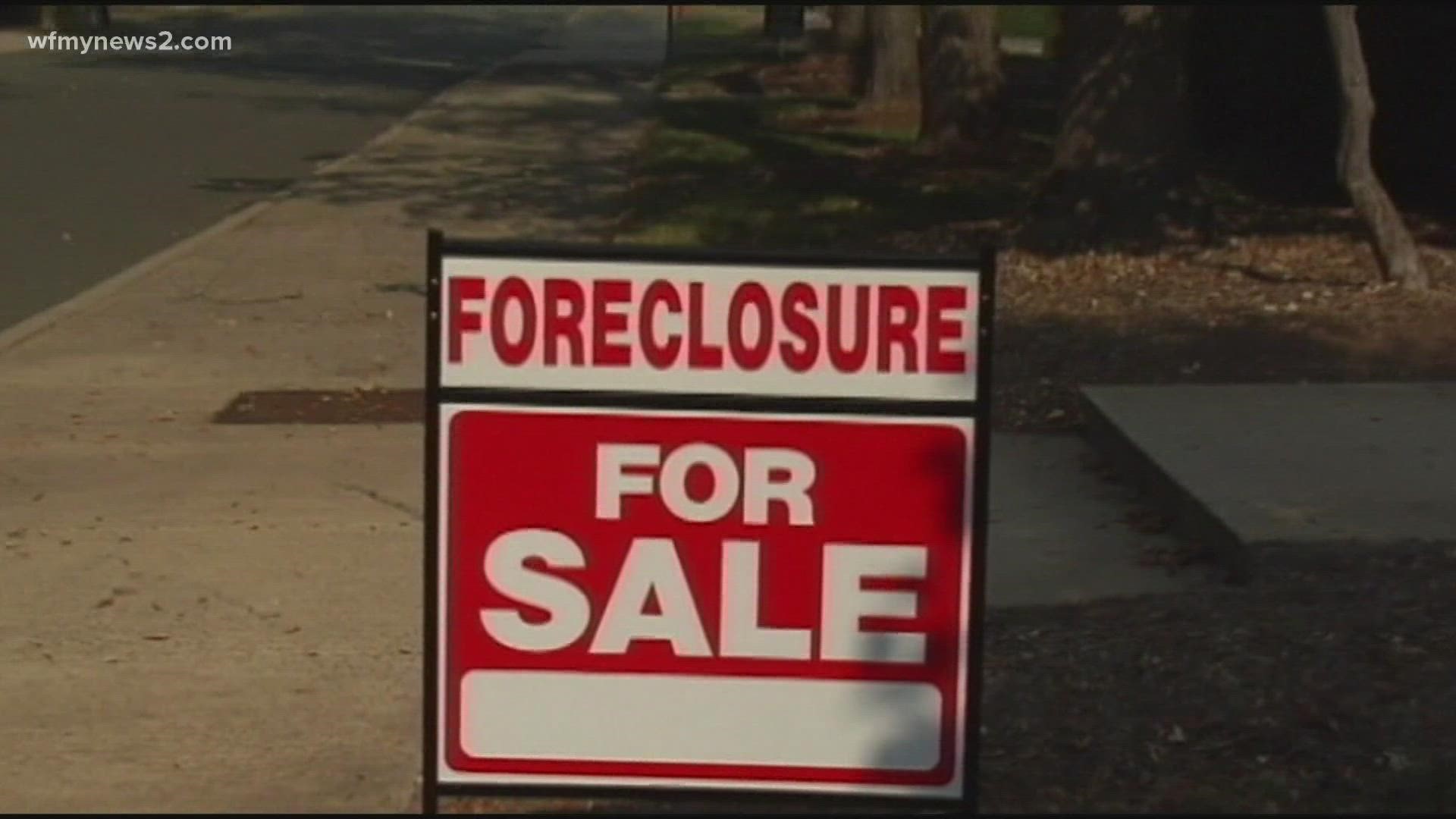GREENSBORO, N.C. — The median selling price for homes in Greensboro in March was $269,000, according to Realtor.com. That's about a 23% jump from last year.
The latest report from the U.S. Department of Commerce showed new home sales slowing down after surging for most of the past two years. It is estimated that 763,000 single-family homes were sold in March. The report said that's an 8.5% drop from February and 12.9% lower than last year.
It could be early signs of the housing market starting to cool off. Mike Carter, a commercial and residential real estate broker, said he wouldn't bet on it.
"There is currently a huge inventory shortage that we are still in," Carter said.
"In a seller's market, there's about six months of inventory available. Right now, we're seeing less than one month of inventory available on the market," Carter continued.
Carter said it will take a long time for the housing market imbalances to recover.
The tight supply and high prices associated with today's housing market have some worried we may be nearing a housing bubble. Alfredo Romero, an economics professor at North Carolina A&T, said current conditions don't qualify as that.
"For a housing bubble to exist, we would have to believe some kind of story about the price rather than ignoring the economic fundamentals that cause the price of a house to be so high," Romero said. "In this case, I think the economic fundamentals justify the increasing prices we've seen."
Romero said many factors have contributed to higher asking prices for homes. The COVID-19 pandemic allowed people to reevaluate what they want from work, such as a remote option, and now they are looking in more desirable locations. He said we continue to deal with supply chain issues from the pandemic and the war between Russia and Ukraine. Romero also explained there's a worker shortage, so even when builders can get supplies, they may not have the labor to start construction.
Romero said the dynamics that caused the 2008 housing bubble are much different from what we see today.
"Banks and hedge funds were pressuring people into buying homes," Romero said. "We also got a little loose with the rules of who could get a mortgage."
Romero said in some cases, people got mortgages approved without their incomes being vetted.
Romero said the housing market could see a dramatic shift in the next six months. The Federal Reserve is expected to increase interest rates in May.
Mortgage rates tend to follow. Romero said when the Fed raised rates by 0.25% in March, we saw mortgage rates go up 2%. That could lead to decreased demand.
Difficulty breaking into the housing market trickled into the rental market. Economists said the dynamics are similar for both. Supply is low, and demand is high, which means higher prices. It could improve soon.
"Just as we're expecting home prices to slow, we are also expecting rent growth to slow but to remain faster than what we would typically experience," Danielle Hale, chief economist for Realtor.com, said.
Hale said she expects rental rates to grow 7% this year. It's higher than normal but lower than last year.
RELATED: Rent Increasing? There's no limit to what a landlord can charge. Should there be rent control?

